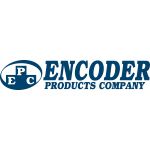Why PKI matters for the IIoT
APM 4.0 will sustain Industry 4.0
Industry 4.0, IIoT and Connected Manufacturing
IoTium Delivers Industry's First Secure, Scalable, Network Infrastructure for Industrial IoT
Top Misconceptions About the IIoT
The Fourth Industrial Revolution: Technology alliances lead the charge
Revolutionizing the IIoT Industry One Streetlight at a Time
GM Hooking 30,000 Robots to Internet to Keep Factories Humming
The Importance of Electrical System Optimization for the IIoT
Alphabet Soup: Understanding IOT Acronyms and How to Compare Them
Ericsson and China Mobile jointly demo the 5G-enabled Smart Factory at MWC 2017
Number of Smart Factories in South Korea to be Almost Doubled
Five steps to enabling a data-driven, smart factory
Why 2017 is the year integration enables Industry 4.0 growth
The Road To IIoT: What Can We Learn From Other Industries?
Records 196 to 210 of 245
First | Previous | Next | Last
Featured Product

MOTION CONTROLLERS FOR MINIATURE DRIVES AND MICRODRIVES
Manufacturing and Automation - Featured Company

